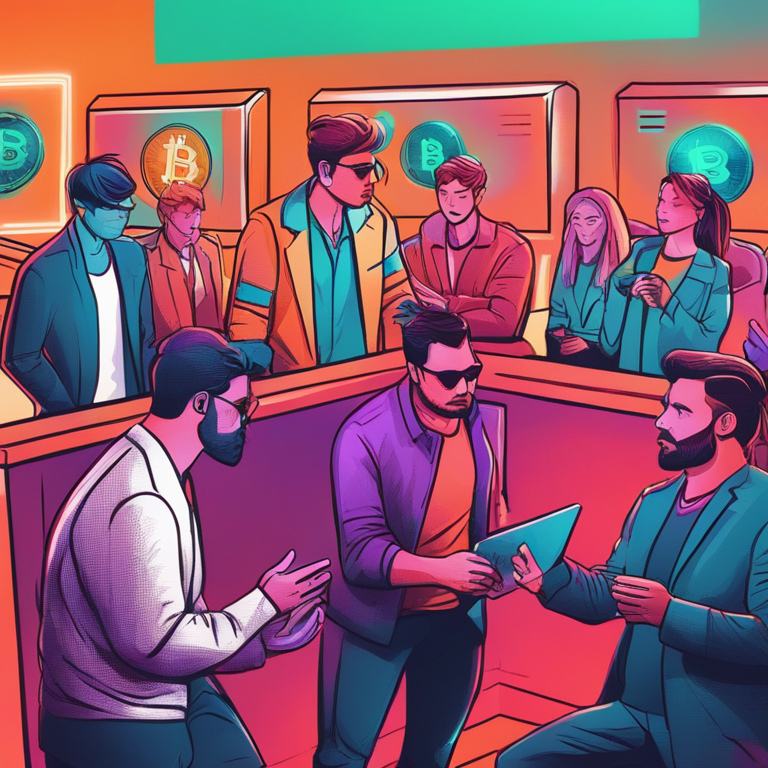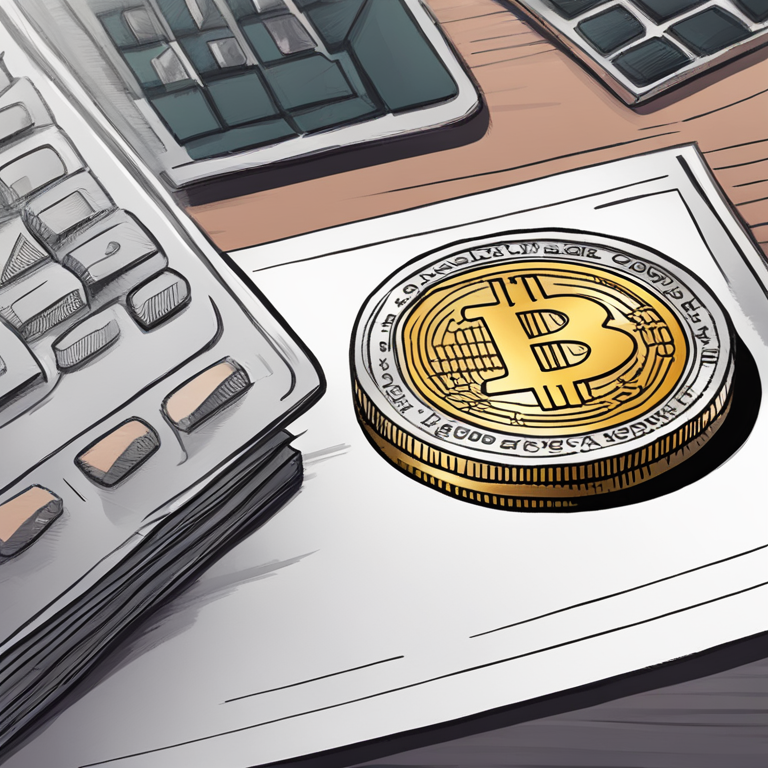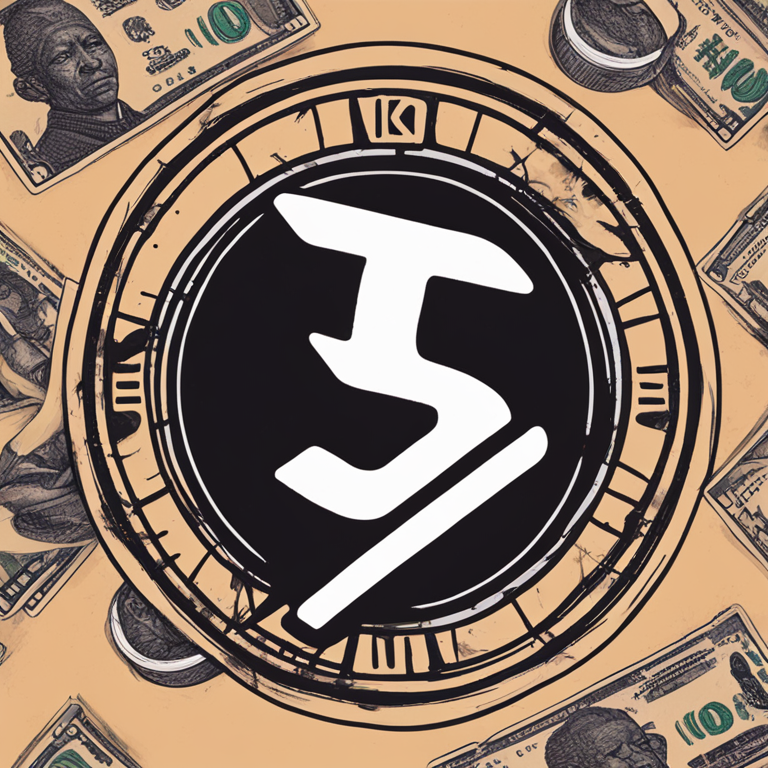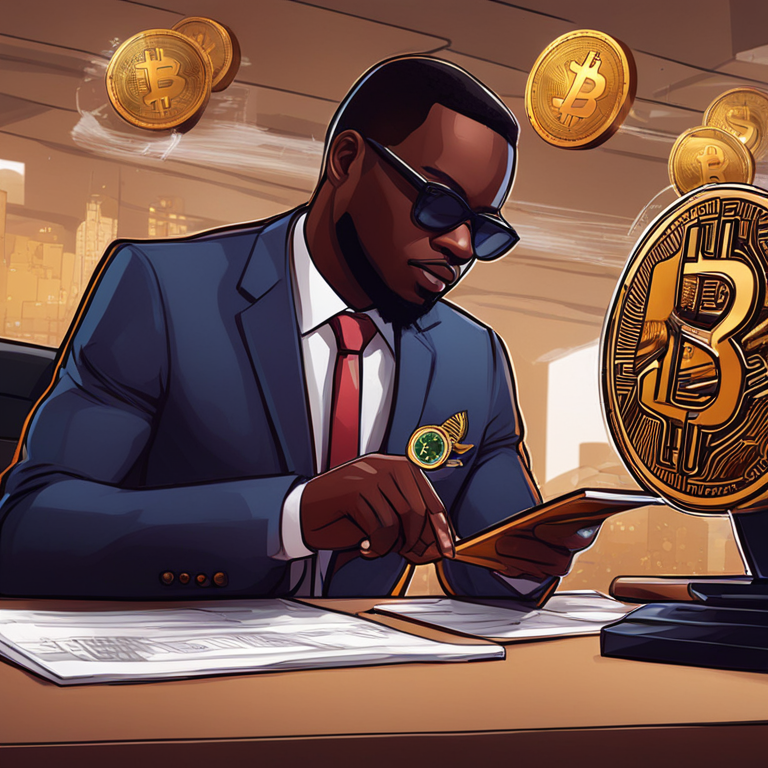KuCoin Halts Naira-Based Peer-to-Peer Trading, Citing Compliance
- byAdmin
- 15 May, 2024
- 20 Mins

Introduction
So, KuCoin just threw a curveball at its users by pulling the plug on naira-based P2P trading. Yep, that's right. It looks like KuCoin is playing it safe in response to growing scrutiny from Nigerian regulators. But wait, there’s more to this story than meets the eye. If you're wondering what’s going on and why KuCoin has taken such drastic action, stick around, as we've got the inside scoop here.
KuCoin Suspends Naira-Based P2P Trading

Announcement
KuCoin rolled out an announcement on a sunny Wednesday, letting everyone know they’re hitting the pause button on their P2P services tied to the Nigerian naira. It wasn’t one of those flashy announcements either; just straight-up business. The eternal optimists they are, KuCoin mentioned it’s a temporary suspension aimed at beefing up their services. In a nutshell, no more P2P trading, and no more Fast Buy services using naira cards, at least for now.
Now, where did this come from? Well, it turns out the Nigerian government is keeping a super close eye on crypto trading lately. Regulatory authorities have been making the rounds and putting the squeeze on industry players. It seems KuCoin decided there's no point in poking the regulatory bear and chose to avoid any unnecessary drama. It’s a classic case of better safe than sorry, if you ask me.
Reason for Suspension
So, what’s got Nigerian authorities so riled up? The plot thickens here. The Nigerian SEC (Securities and Exchange Commission) had a sit-down with crypto industry folks a few weeks back. Their advice? Cut out all that P2P trading stuff. Why? They’re worried it’s doing a number on the value of the naira. The head honcho over at the SEC, Emomotimi Agama, has even blamed these traders for the currency's depreciation. Yikes.
Adding fuel to the fire, Nigeria’s Economic and Financial Crimes Commission (EFCC) has been playing crypto whack-a-mole by blocking thousands of bank accounts involved in trading. Banks and fintechs were also put on notice to close any such accounts and spill the beans to the authorities. Despite all these stringent measures, the naira isn’t exactly having a stellar time at the exchange rates either, hitting new lows recently.
It looks like the Nigerian government is determined to rein in the crypto craze, and KuCoin’s move is a strategic retreat to keep clear of any potential fallout. We'll have to stay tuned to see how this all unfolds and if KuCoin’s services for Nigerian users will make a comeback in the future.

Nigeria's regulatory scrutiny
Recently, KuCoin hit the pause button on its naira-based peer-to-peer (P2P) trading arena, citing compliance concerns. This decision didn't just come out of the blue; it followed some serious regulatory heat from Nigeria's government authorities. KuCoin's move came just three weeks after a meeting with the country's Securities and Exchange Commission (SEC), which sounded like the crypto version of a stern parent-teacher conference. The SEC urged industry players to cease P2P trading activities. In a blog post, KuCoin made the announcement, framing it as part of their grandiose plans to “enhance their services,” which roughly translates to “let’s not get into hot water with the law.”
The timing here isn't coincidental. Another major exchange, Binance, recently faced some federal charges and a regulatory chinwag that was anything but relaxed. By tapping out temporarily, KuCoin seems to be dodging a similar fate. Clearly, no one wants to be the next headline news for the wrong reasons, especially not in a rapidly evolving and somewhat volatile environment like cryptocurrency.
Government actions

Nigeria’s government has jumped from the frying pan and into the fire when it comes to clamping down on P2P cryptocurrency trading. Leading the charge, the office of the Security Adviser has put fintechs and banks on red alert – they’ve been instructed to close any bank accounts linked to crypto trading faster than you can say “blockchain.” These institutions must also report such accounts to the authorities. The Economic and Financial Crimes Commission (EFCC) has been playing whack-a-mole with thousands of accounts suspected of crypto trading, blocking them with relentless zeal.
At the center of all this is a concern over the cryptocurrency market’s potential for misuse and non-compliance with existing financial regulations. This scrutiny isn’t just an episode; it’s a saga that has serious implications for anyone trading cryptocurrency in Nigeria. The overarching idea is to bring order to what many perceive as a chaotic aspect of Nigeria’s financial landscape. But judging by the intensity of the actions taken, it appears that the Nigerian authorities see P2P crypto trading less as a financial innovation and more as a digital Trojan horse.
Economic and Financial Crimes Commission (EFCC) involvement
The EFCC has entered the frame with all the subtly of a sledgehammer. Known for its stringent measures, the commission has blocked thousands of accounts as part of its crackdown on P2P crypto trading. They’ve been targeting accounts faster than a flash mob, aiming to nip any illicit activities right in the bud. The EFCC is essentially the Sherlock Holmes of Nigeria’s financial realm, scrutinizing accounts, following the digital trails, and pulling the plug on anything that looks fishy.
This level of intervention has caused quite a stir. Crypto traders are left in a lurch, trying to navigate and maneuver around these hefty restrictions. For many, it has become a cat-and-mouse game as they scramble to find alternative ways to trade crypto without falling foul of the EFCC.
SEC's concerns
Emomotimi Agama, Director-General of the SEC, has a bone to pick with crypto P2P traders. During a meeting on May 7, he laid the blame for the depreciation of the naira squarely at the feet of these traders. According to Agama, P2P crypto trading has directly impacted the naira’s exchange rate.
While P2P traders might think of themselves as crypto pioneers, Agama views them more as culprits destabilizing the nation's currency. His concerns are not without merit, as the naira’s value against the dollar has been on a distressing downward spiral. It’s like watching your favorite sports team lose one match after another; at some point, you want to bench the underperformers and try a new strategy. Hence, the regulatory hammer is coming down hard and fast.
Impact on naira exchange rate
Despite these tough measures, the naira continues to face turbulent times. The exchange rate of the naira against the US dollar has been on a bumpy ride. On Monday, the naira was trading at N1,520 per dollar in the Foreign Exchange (FOREX) parallel market, a 3.4% decline from N1,470 per dollar just a few days earlier.
The question on everyone's mind is whether these regulations are helping or just giving the naira a temporary boost before the next plummet. It's like putting a band-aid on a leaky dam. As the nation grapples with these economic challenges, the general sentiment remains mixed. Traders are frustrated, regulators are on high alert, and the common folk are watching the naira's value dance around like it’s in a chaotic crypto club.
Binance Nigeria conflict
Accusations of bribery
And just when you thought the plot couldn’t thicken further, enter Binance. The crypto giant found itself embroiled in a dramatic standoff with the Nigerian government. Binance CEO Richard Teng recently accused a Nigerian government official of pressuring them into accepting a not-so-secret “secret agreement” that included a $150 million bribe. Yes, you read that right, folks—a tidy sum meant to make some regulatory issues disappear within 48 hours. Teng’s recount of the ordeal reads like the synopsis of a high-stakes thriller as Binance’s team decided to exit Nigeria, stage left, faster than you can say “decentralized.”
Naturally, accusations like this do not go unnoticed. According to Teng, the proposal was to pay the bribe in cryptocurrency to quickly settle Nigeria’s claims, effectively sweeping the concerns under the rug. Binance’s swift departure from Nigeria following the proposal paints a picture of a company not just unwilling, but downright anxious to avoid further complications.
Nigeria’s response
Nigeria, of course, shot back with vigor. Stating that the bribery accusations were merely a diversion tactic by Binance to shift focus from the exchange’s own questionable actions, the government dismissed the claims. This response was likely intended to mitigate any reputational damage and reinforce the nation’s stance that they were taking legitimate regulatory steps.
The rhetoric exchanged between Binance and Nigerian officials demonstrates just how strained and controversial the crypto landscape has become. Regulatory dusty crosshairs with huge sums of money at stake recall the drama and high tension you’d typically expect to see in a blockbuster movie, not in financial audits.
Regulatory actions against Binance
The recent regulatory heat on Binance didn't stop at accusations of bribery. Earlier, Binance had to stop all services involving the Nigerian naira after facing severe scrutiny from Nigerian regulators. To add insult to injury, the Nigerian government slapped Binance with a colossal $10 billion fine, a blatant signal that the country means business when it comes to stabilizing its local currency.
Globally, Binance hasn't had it easy, either. The Commodity Futures Trading Commission (CFTC) filed charges against Binance last year, accusing it of operating an illegal digital asset derivatives exchange and dodging federal laws. It’s like the exchange is embroiled in a perpetual game of legal whack-a-mole, with another regulatory body always ready to step up to the plate.
More recently, the US Securities and Exchange Commission (SEC) charged Binance Holdings LTD and its CEO, Changpeng Zhao (CZ), for allegedly running unregistered exchanges, brokerages, clearing houses, and the unregistered offer and sale of securities. Now that’s what you call a regulatory buffet. The plethora of charges indicates a global consensus among regulatory bodies that Binance needs to tighten its compliance belt, and fast.

The move by KuCoin
Hey there, crypto enthusiasts! In the latest twist, KuCoin has just dropped a bombshell by suspending all naira-based peer-to-peer (P2P) trading. Yep, you heard that right! This decision is tied to the ever-increasing scrutiny and regulatory pressure from Nigeria’s watchdogs. Just around three weeks ago, the country’s Securities and Exchange Commission (SEC) had a little chit-chat with the industry players. And surprise, surprise, they were urged to hit pause on P2P trading activities. So, KuCoin had to break this bittersweet news to its users via a blog post. The suspension also covers the Fast Buy service via Naira card. Basically, KuCoin is using this pause to polish up its services, folks!

Nigeria intensifies scrutiny of P2P crypto trading
Meanwhile, the Nigerian government isn't just sitting around. They are ramping up their efforts big time, especially by making life tricky for P2P crypto trading. The office of the Security Adviser is all eyes and ears, making sure fintechs and banks close accounts linked to trading and notify the authorities pronto. Not to mention, the Economic and Financial Crimes Commission (EFCC) has already blocked a ton of accounts engrossed in crypto action. In a recent meeting reported by TechCabal, Emomotimi Agama, the head honcho at the SEC, went all guns blazing against crypto P2P traders, blaming them for dragging down the naira's value. Even with the regulators playing tough, the naira dipped to N1,520 per Dollar at the FOREX parallel market on Monday. Ouch!
Binance Nigeria conflict resumes
And if you thought that was spicy, wait till you hear about Binance's ongoing drama in Nigeria. In a jaw-dropping blog post, Binance CEO Richard Teng called out a Nigerian official for trying to hustle crypto reps into a shady agreement. Apparently, the "settlement" for Nigeria’s complaints against Binance was nothing but a $150 million bribe shrouded in crypto secrecy. His team was both shocked and anxious, and they didn’t stick around to see how things would unfold. Of course, Nigeria snapped back at Binance's bribe accusations, saying it's all a ploy to divert attention from Binance's alleged misdeeds.
The Nigerian government isn't exactly fond of Binance, slapping a $10 billion fine on the platform to get their point across. Binance’s issues don't end there, as it's chasing regulatory ghosts worldwide. The Commodity Futures Trading Commission (CFTC) charged Binance last year for apparently running an illegal digital asset derivatives exchange and giving federal laws the slip. Not to be outdone, the US Securities and Exchange Commission (SEC) also charged Binance Holdings LTD and its CEO CZ with operating unregistered exchanges and a laundry list of other infractions. Talk about a worldwide regulatory tour!
Ethan Taylor
Ethan Taylor here, your trusted Financial Analyst at NexTokenNews. With over a decade of experience in the financial markets and a keen focus on cryptocurrency, I'm here to bring clarity to the complex dynamics of crypto investments.



